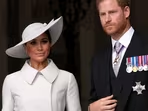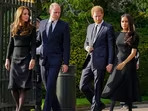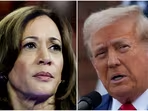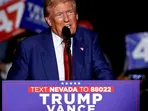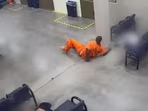Overshadowed President by Xi Jinping, Premier Li Keqiang reflected the Communist Party’s human face
Chinese national flags flew at half-mast on November 2 including at the Tiananmen Square in Beijing, government and party committee buildings across China and at Chinese embassies and consulates overseas as the remains of late former Premier Li Keqiang were cremated in the capital on Thursday. 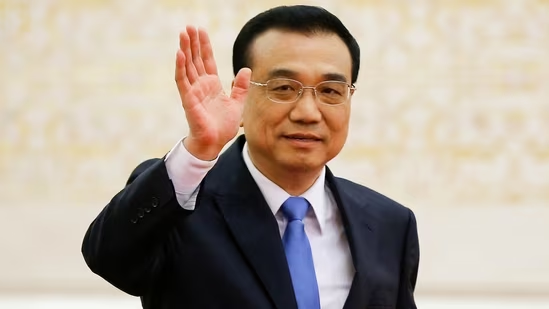 PREMIUM
PREMIUM
Li, 68, died after suffering a heart attack in Shanghai on October 27.
An outpouring of sadness and tributes on China’s strictly controlled social media followed Li’s death, which was marked by a sense of genuine grief.
Li retired earlier this year after two decades as premier, a period that was witness to a steady erosion of his power and influence despite once being seen as China’s future leader.
That was before “princeling” Xi Jinping, the son of a leading Communist Party of China (CPC) revolutionary, with his image among party elites as a strong leader, leapfrogged him in the opaque leadership race, becoming the CPC general secretary and the president of the country in 2012 and 2013.
Officially, Li, as the premier, was the head of the Chinese state council or the cabinet and the number 2 in CPC’s elite seven-member politburo standing committee, the party’s top decision-making body.
In reality, Li was relegated to the background by Xi’s sharp ascendancy as the most powerful Chinese leader since Mao Zedong and his ruthless accumulation of power.
As early as 2013, Xi set up the Central Leading Group for Comprehensively Deepening Reform, making himself its chief -- which later transformed into the Commission for Comprehensively Deepening Reform – and effectively curtailed the English-speaking economist, Li’s power.
Over the years, Li lost power both politically within the CPC, despite his Communist Youth of China League background, as well as being the top official authorised to steer the economy: Instead of Li’s reform-focussed policies, Xi’s statism took over.
In 2020, Li did unexpectedly make global headlines at his annual press conference at the end of the yearly session of the China’s rubber-stamp parliament, the National People’s Congress’ (NPC).
Over 600 million people in China have a monthly income of only 1,000 yuan (around ₹11,300), Li said, adding that with that money it might be difficult to even rent a home in a mid-sized Chinese city. People’s livelihoods are of utmost significance post-Covid-19, Li added.
The statement injected an unexpected buzz at the choreographed press conference and ignited a debate in China about the country’s – real -- economic situation.
What it also did was to cement Li’s image and perception as a well-meaning, affable CPC leader – with a human face -- compared to the more sterner and stricter vibe from the party general secretary.
But, over the years, and even in death, Li was overshadowed by Xi.
“In death, Li remains as overshadowed by Xi as he was in life. As of publication, official news sites such as the People's Daily and Xinhua relegated his death to a thin headline beneath talk of Xi’s latest accomplishments, if they mentioned it at all. His official obituary repeats the phrase ‘with Comrade Xi Jinping as the core’ four times and ends with a paragraph of Xi’s political cliches,” James Palmer of the Foreign Policy wrote last week.
Nonetheless, after Li’s death, the Chinese government was quick to issue censorship instructions on how the death was to be covered by state media.
“All media outlets (including departmental and neighbourhood public WeChat pages!) that republish news related to Li Keqiang’s death must exclusively use copy from mainstream central outlets (Xinhua, CCTV, People’s Daily)…Comment sections must be well-managed. Pay particular attention to overly effusive comments and assessments,” the China Digital Times, a US-based portal that tracks China’s digital space and censorship, said, quoting a leaked government memo.
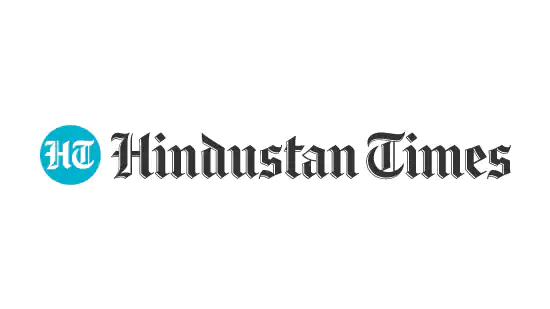
Li Keqiang and India
India was the first foreign stop for Li after he took office in 2013.
“I choose India as the first stop of my first visit abroad, for India is an important neighbour of China and both countries are the largest developing nations with the population over one billion,” Li said in his opening remarks at a joint press conference with former Indian Prime Minister Manmohan Singh in New Delhi on May 20.
Talking about India’s and China’s “tremendous potential for common development”, he said: “When you sow the seeds in spring, you will have a bounty harvest in autumn”.
In 2015, when Prime Minister Narendra Modi came to China, both, among other more official engagements, took a selfie at Beijing’s famous Temple of Heaven, which was dubbed as one of the most “power-packed selfies in history”.
The Wall Street Journal, in a report on the selfie headlined "Did Modi Just Take the Most Powerful Selfie in History", said the prime ministers of the world's two biggest countries "leaned on each other...for what may be the most politically power-packed selfie in history".
Continue reading with HT Premium Subscription
Daily E Paper I Premium Articles I Brunch E Magazine I Daily Infographics Subscribe Now @1199/year Already Subscribed? Sign In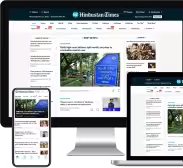
Disclaimer: The copyright of this article belongs to the original author. Reposting this article is solely for the purpose of information dissemination and does not constitute any investment advice. If there is any infringement, please contact us immediately. We will make corrections or deletions as necessary. Thank you.
Title:Overshadowed President by Xi Jinping, Premier Li Keqiang reflected the Communist Party’s human face
Url:https://www.investsfocus.com

